Løn (A-skattað)
04. Mai 2020
Wage expenditure growth comes to a halt

Wage expenditures increased by 0.5% from April 2019 to April 2020. The trend shows that the wage expenditure growth seen in recent years has now come to a halt.
[px-graph-1]
The graph below shows wage expenditures for both genders. In April, men were paid about DKK 520 million and women about DKK 325 million. Compared to April 2019, men’s wages went up by about DKK 10 million (+2.1%), while women’s wages dropped by DKK 6 million (-1.9%).
[px-graph-2]
The four graphs below show wage expenditures in the four main industrial sectors: ‘the public service sector’, ‘the private service sector’, ‘fishing and other natural resources’ and ‘construction and other manufacturing’. The graphs also include projections of March and April estimates made before the corona crisis. The red dots show the projected estimate (the point estimate) for March and April, and the grey fields show the degree of uncertainty (80% and 95%).
A comparison between wage expenditures and the projected figures for March and April reveals a significant change in the private service sector. This sector saw a decrease of DKK 37 million (14%) compared to the projected estimate.
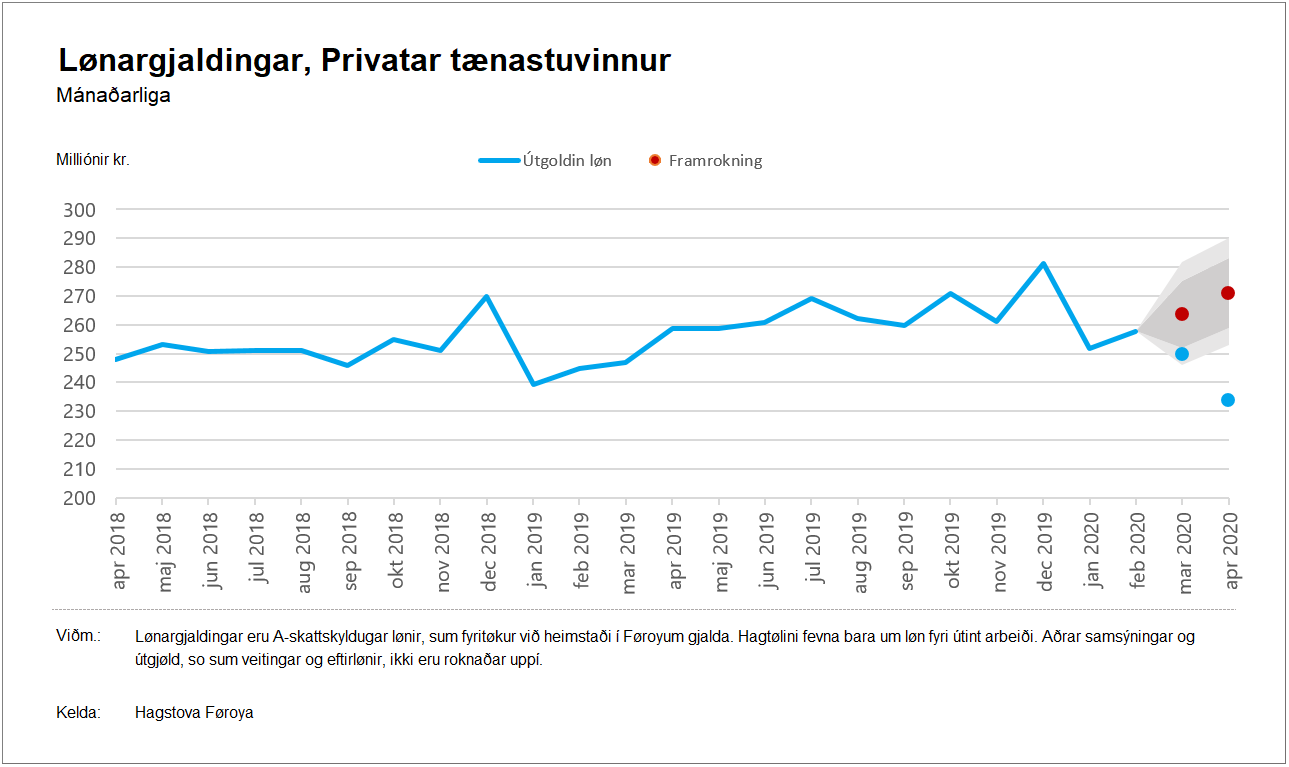
The other industrial sectors follow the expected trend.
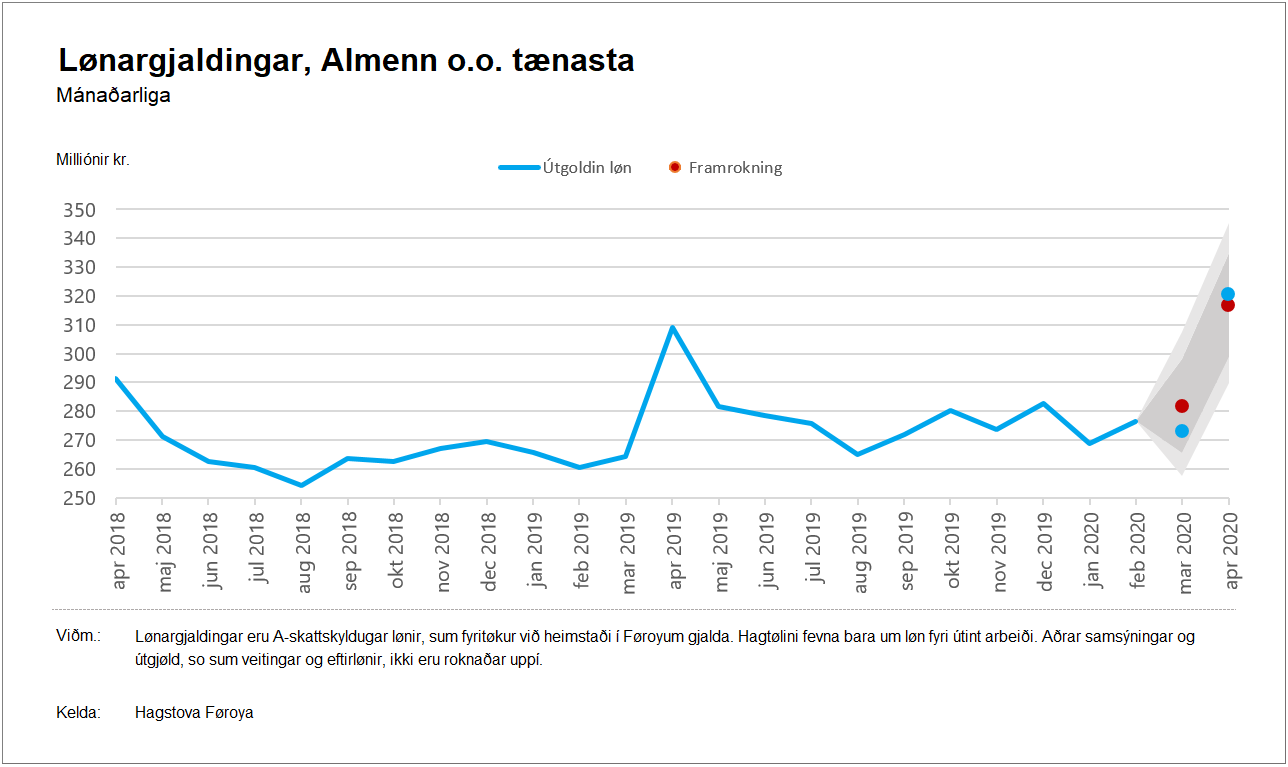
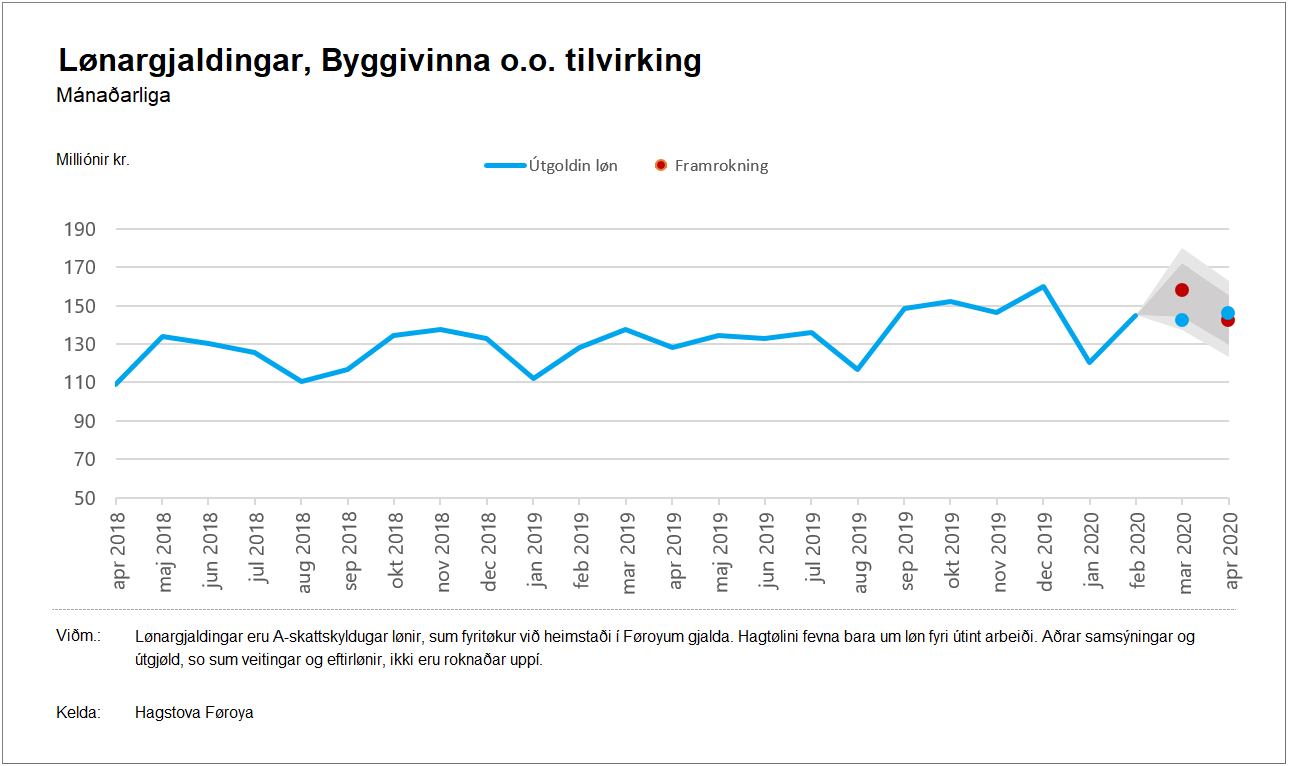
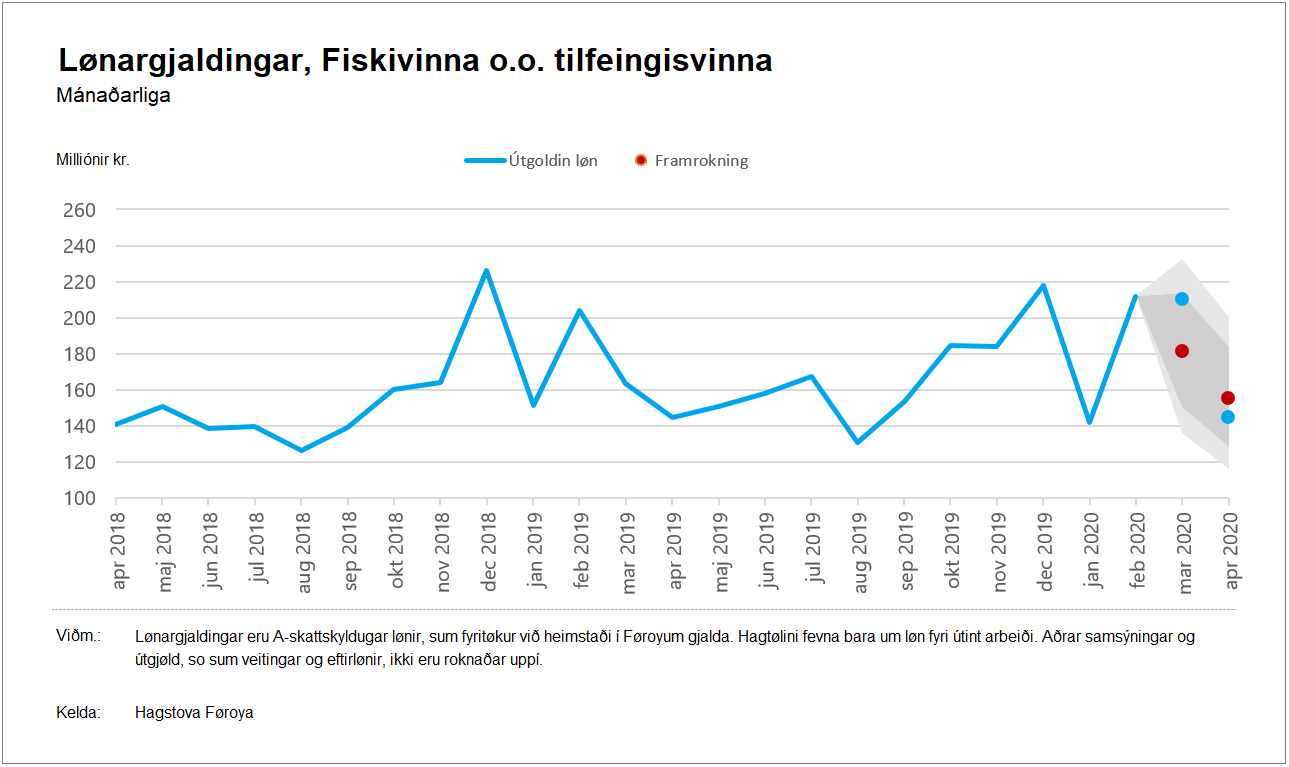
Private service sector subdivided into branches
The private service sector branches with the biggest drop in wage expenditures are ‘hotels and restaurants’, ‘trade and repair’, ‘other transport’ and ‘household services’.
‘Hotels and restaurants’ have seen a 70% drop in wage expenditures compared to the projected estimate.
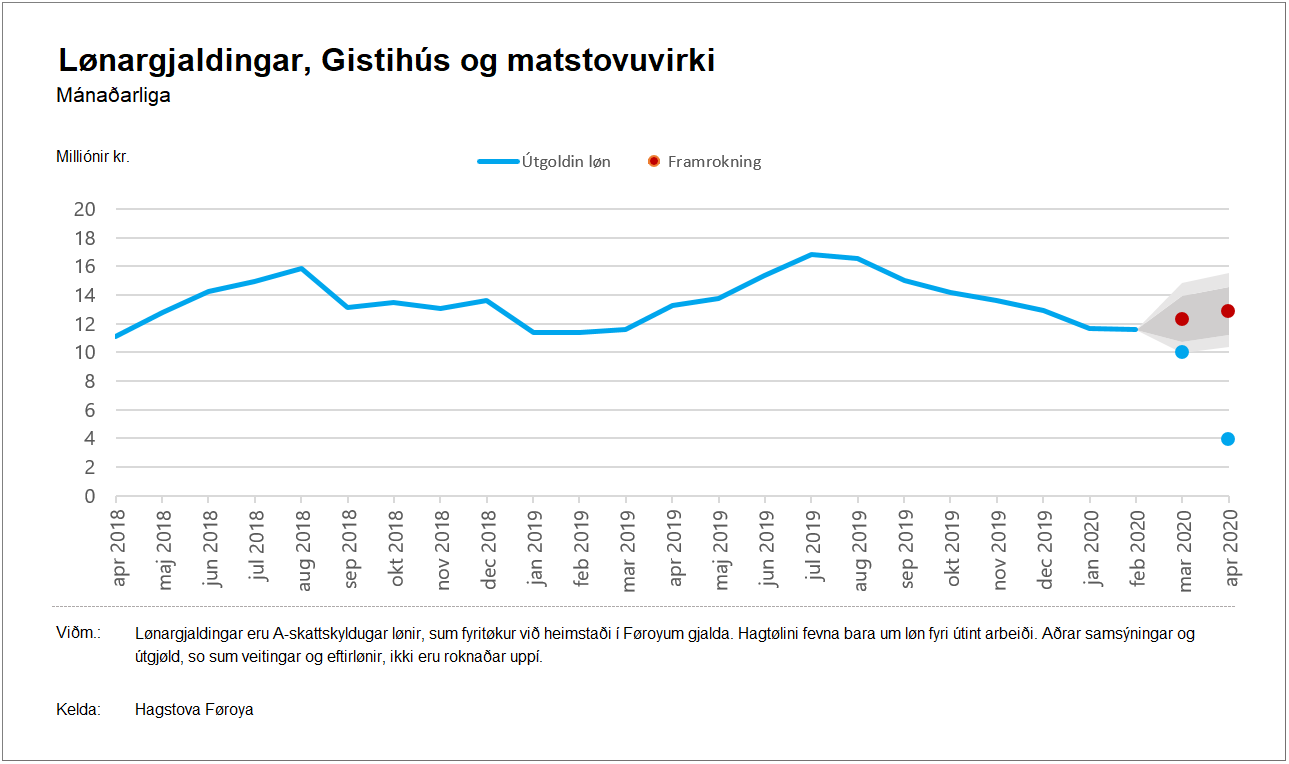
For ‘trade and repairs’, there was a 10% drop.
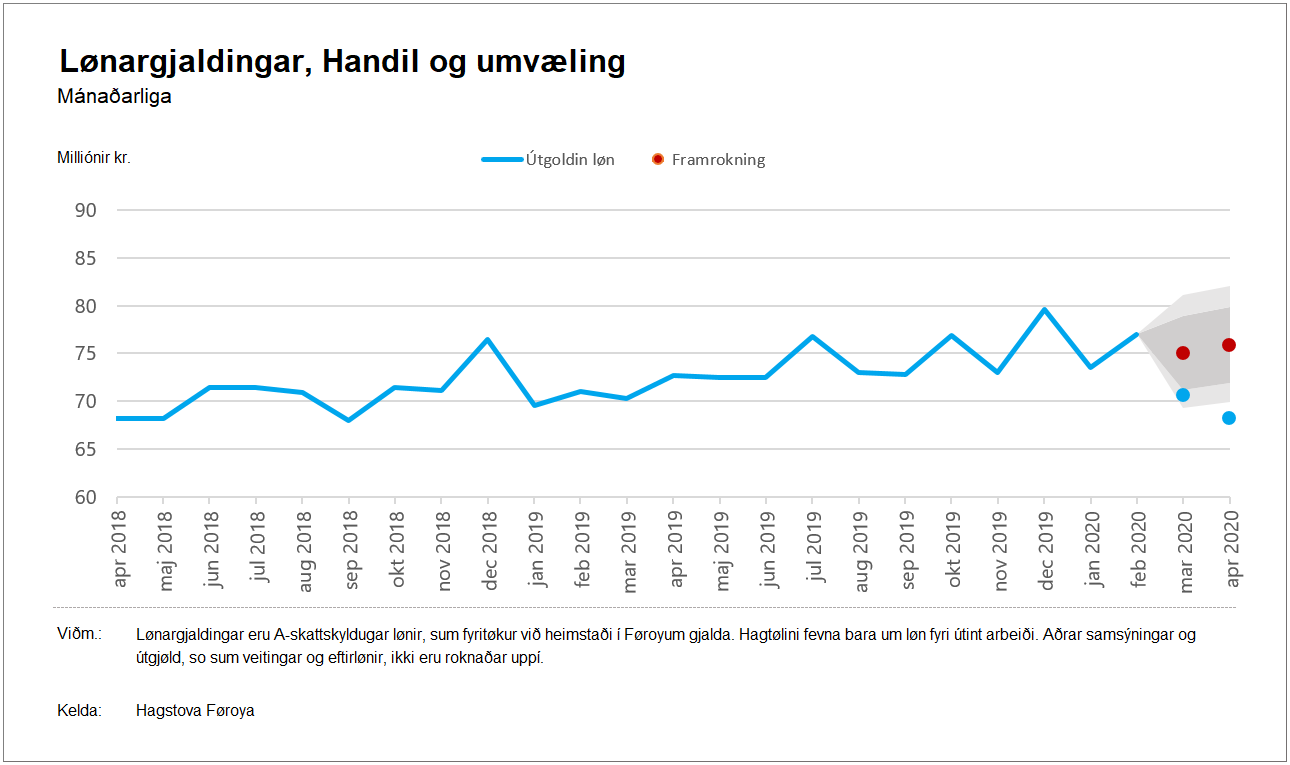
‘Household services’, which includes cleaning services, rubbish collection, hairdressing, beauty salons and fitness centres saw a drop of 21% compared to the projected estimate.
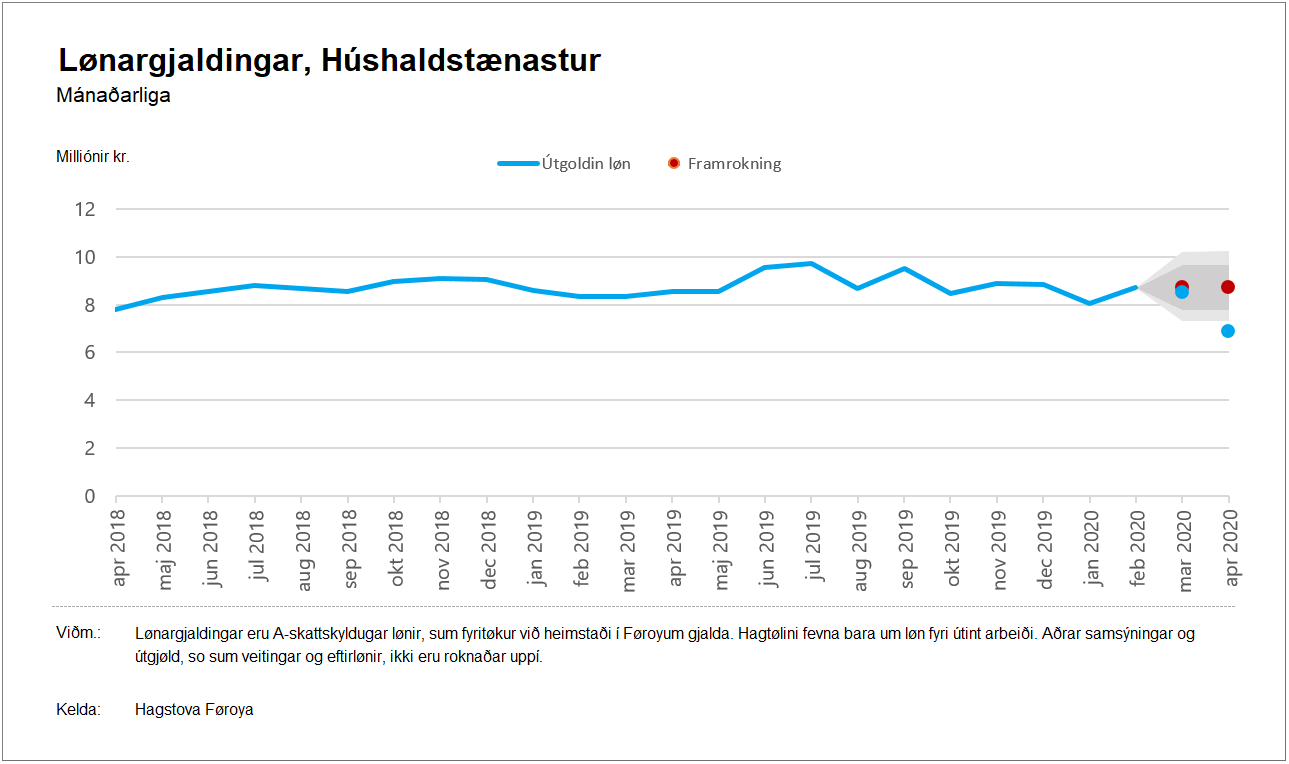
‘Other transport’, which includes truck delivery services, public transport, taxis and other land-based passenger transport, saw a drop of 29%.
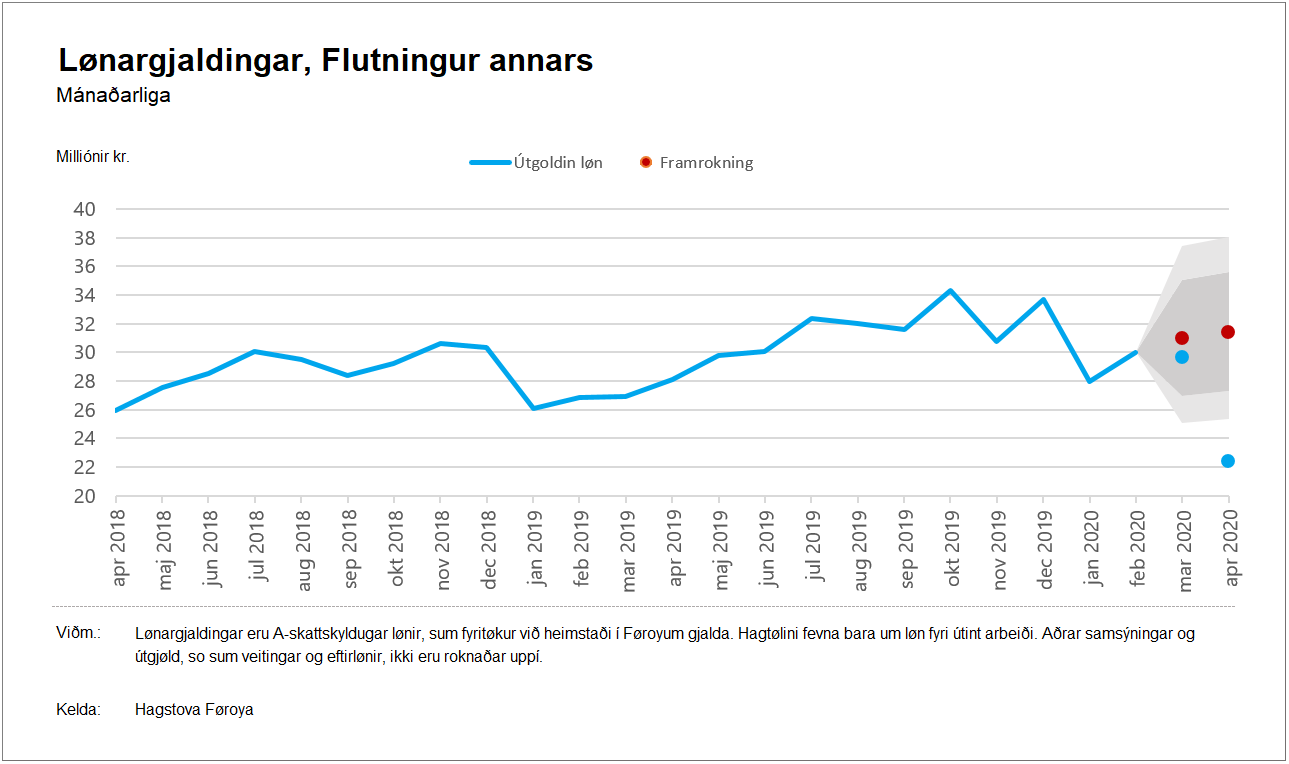
About wage expenditures
Wage expenditures are subject to tax at source and are paid by companies based in the Faroe Islands. The statistics only covers wages for work done. Other payments and expenditures such as grants and post-employment benefits are not included.
All wage expenditures meeting the above requirements will be counted in regardless of the employee’s nationality.
About the trend
The trend describes the wage expenditure trend by adjusting for seasonal effects and error components in the figures.
About the main industrial sectors
Grouped under the ‘fishery and other natural resources’ sector are the following branches: agriculture, fishing, aquaculture, extraction of raw materials, fish processing and activities not elsewhere indicated.
The ‘construction and other manufacturing’ sector includes: shipyards/machine shops, other manufacturing, construction and energy.
The ‘private services’ sector includes: trade and repair, hotels and restaurants, sea transport, other transport, communications, finance and insurance, business services. household services and organisations, culture, etc.
‘Governmental and other services’ includes: public administration and services (central administration, municipalities, education, health and social work), government institutions and the Ministries of Education and Health.